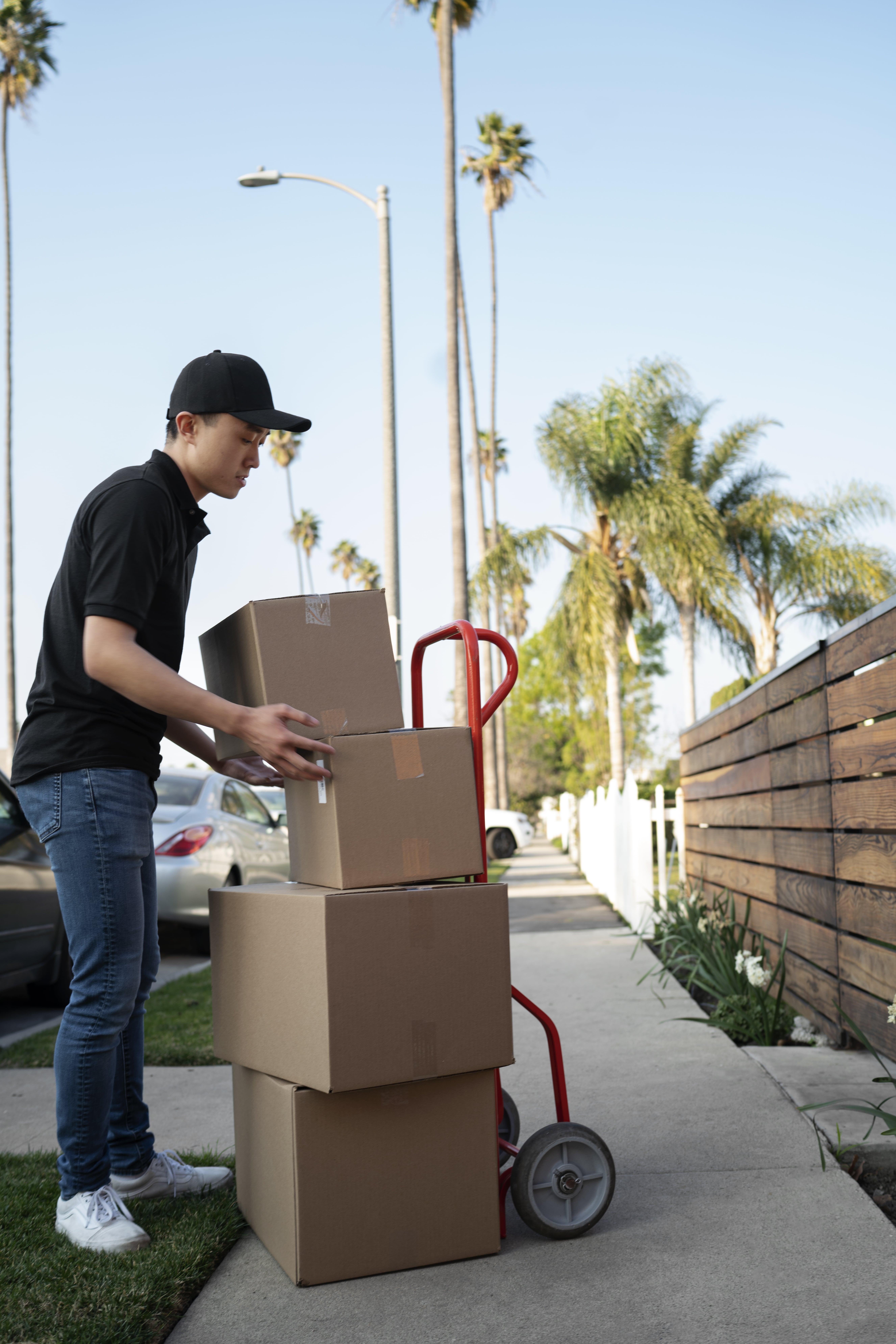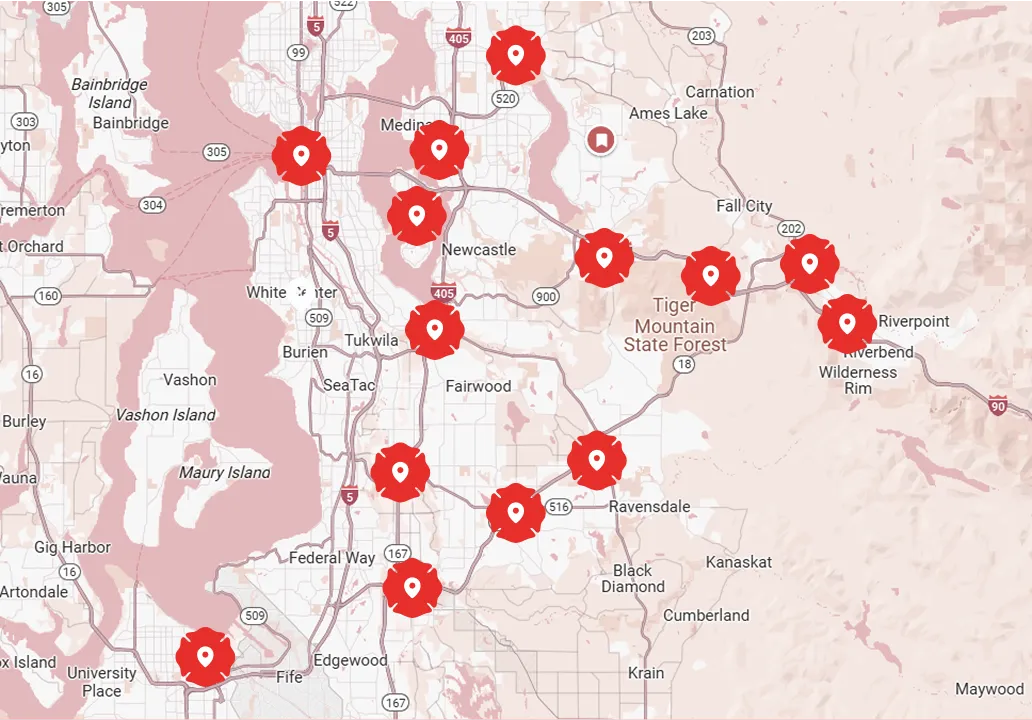State to State Moving Companies in Snoqualmie, WA
.webp)
State-to-state moving from Snoqualmie, WA requires licensed, well-coordinated service to ensure a safe and compliant relocation. Interstate movers operate under FMCSA authority, carrying valid USDOT and MC numbers for accountability. Pricing typically depends on weight, distance, additional services, and valuation coverage. The process spans intake, survey, packing, loading, transport, and delivery—with options for real-time tracking, storage-in-transit, and contingency plans for weather or mountain passes. Examples of successful routes to Denver, Silicon Valley, and Minneapolis show how planning and transparency lead to smooth, predictable results.

Moving State to State Moving Companies in Snoqualmie, WA
Moving across state lines from Snoqualmie requires more than a truck and a crew. Your move crosses regulatory boundaries, long-distance logistics, and Pacific Northwest weather that can complicate timing. This page explains exactly how our state-to-state moving service works for Snoqualmie homes, why DOT and MC licensing matters, how pricing is calculated, what to expect during transit, and real-world examples of interstate moves we have managed. The goal is to give you the clear, practical information needed at the decision stage so you can choose a mover with confidence.
Common state-to-state moving needs for Snoqualmie residents
- Relocating for work to California, Colorado, Texas, or the East Coast
- Shipping a household with specialty items like pianos, antiques, or artwork
- Military or government transfers requiring tight timelines and paperwork
- Moving from a mountain-area property or narrow Snoqualmie neighborhood
- Combining long-term storage with interstate transportation
Snoqualmie brings specific considerations: narrow residential streets near the falls, wet and snowy seasonality that affects mountain passes (I-90 and Snoqualmie Pass), and periodic weather-related delays. We plan moves with those factors in mind.
Licensed, insured, and compliant: what DOT and MC mean for you
For interstate moves the Federal Motor Carrier Safety Administration, FMCSA, requires movers to hold a USDOT number and a Motor Carrier (MC) number. These registrations confirm a moving company is authorized to operate across state lines and subject to federal safety and insurance rules.
Why this matters:
- Accountability: Licensed carriers must maintain records and submit to audits and inspections.
- Insurance and claims: Federal rules require minimum levels of cargo and liability coverage and standardized claims procedures.
- Transparency: Federally regulated movers must provide a written estimate and bill of lading for interstate moves.
We operate under federal authority and follow FMCSA requirements for documentation, insurance, and safety. That means your interstate shipment is handled according to standard commercial practices rather than local-only rules.
How we price state-to-state moves
Interstate moving pricing is different from local moves. Key elements we use to build an accurate estimate:
- Weight of shipment: Long-haul pricing is typically weight-based and measured on certified scales at origin or destination.
- Distance and route: Actual miles and common route constraints (mountain passes, ferry crossings) affect costs and transit times.
- Accessorial services: Stairs, long carries from home to truck, shuttle service for narrow streets, and bulky item handling are charged separately.
- Packing and materials: Full-service packing versus partial or self-pack affects labor hours and materials.
- Valuation coverage: Choice of released value versus full replacement protection affects risk and paperwork.
We provide binding and nonbinding estimate types in accordance with federal rules, explaining how each works. Binding estimates guarantee price unless you add services or items; nonbinding estimates are adjusted to the measured weight at delivery.
Our long-distance moving process
- Intake and survey: We conduct an in-home or virtual visual survey to inventory your household, measure access, and identify special handling items.
- Written estimate: You receive a clear estimate specifying binding or nonbinding terms, anticipated transit time ranges, and included services.
- Packing and loading: Packing is done with long-haul protection in mind: double-boxing fragile items, mattress covers, wardrobe boxes, and secure bracing on the truck.
- Transit: Your shipment is assigned to a scheduled linehaul between hubs, with planned rest and compliance stops for driver safety.
- Tracking and communication: Regular status updates, an inventory list, and a bill of lading accompany your shipment.
- Delivery and unloading: Final delivery follows a prearranged window. We perform a walk-through inventory and document any issues.
All moves include a detailed bill of lading and inventory log so condition and contents are recorded from pickup through delivery.
Transit support and customer care during interstate moves
Long-distance moves are inherently less predictable than local moves. Our transit support focuses on visibility and responsiveness:
- Dedicated move coordinator who provides status updates and coordinates between origin and destination crews
- Realistic transit windows (typical ranges: Pacific Northwest to Northern California 2-4 days, to the Mountain West 3-6 days, to the Midwest 5-8 days, to the East Coast 7-10 days depending on service levels and route)
- Real-time updates for weather delays or highway closures; contingency routing when passes are impacted by snow or landslides
- Documented claims and inspection processes in case of damage, with assistance filing required forms and photos
- Options for storage-in-transit if delivery timing needs to be adjusted
Examples of interstate moves from Snoqualmie
- Family relocation to Denver: A two-adult household with a piano and several oversized items. We performed custom crating for the piano, scheduled a shuttle due to a narrow Snoqualmie driveway, and coordinated a direct linehaul to Denver with a storage-in-transit hold to align with the new home closing.
- Tech relocation to Silicon Valley: Partial packing and specialty handling of electronics and high-value office equipment. Weight-based quote, secure wrapping, and a dedicated linehaul kept transit time within an expected 3-day window.
- Move to Minneapolis with seasonal weather planning: Winter move where Snoqualmie Pass closures were likely. We planned an earlier pickup, added contingency routing, and used heated storage during an unexpected holdover to maintain item condition.
These scenarios illustrate typical complexities for Snoqualmie-origin interstate moves and how planning and experience reduce risk.
Preparing your Snoqualmie home for a state-to-state move
- Create an accurate inventory and note special items that need protection or disassembly.
- Clear parking and access routes for the moving truck; permit or HOA requirements for street parking if needed.
- Label boxes by room and note fragile contents. Fragile declaration helps during long haul loading and unloading.
- Be flexible on dates during winter months and have contingency windows for mountain pass conditions.
- Review valuation options and understand the differences between released value and full value protection.
Why timely, compliant interstate moving matters
Delays, improper packing, or unlicensed carriers increase risk and cost. Choosing a federally licensed mover with documented processes, clear pricing methodology, and robust transit support reduces friction, protects your belongings, and provides the transparency needed for larger moves out of state. For Snoqualmie residents facing seasonal weather, narrow access, or tight schedules, that expertise becomes especially important.
This information is intended to help you evaluate state-to-state moving options from Snoqualmie, WA with confidence. It explains the regulatory basics, pricing logic, transit support, and real-world handling you should expect from a professional interstate mover.

